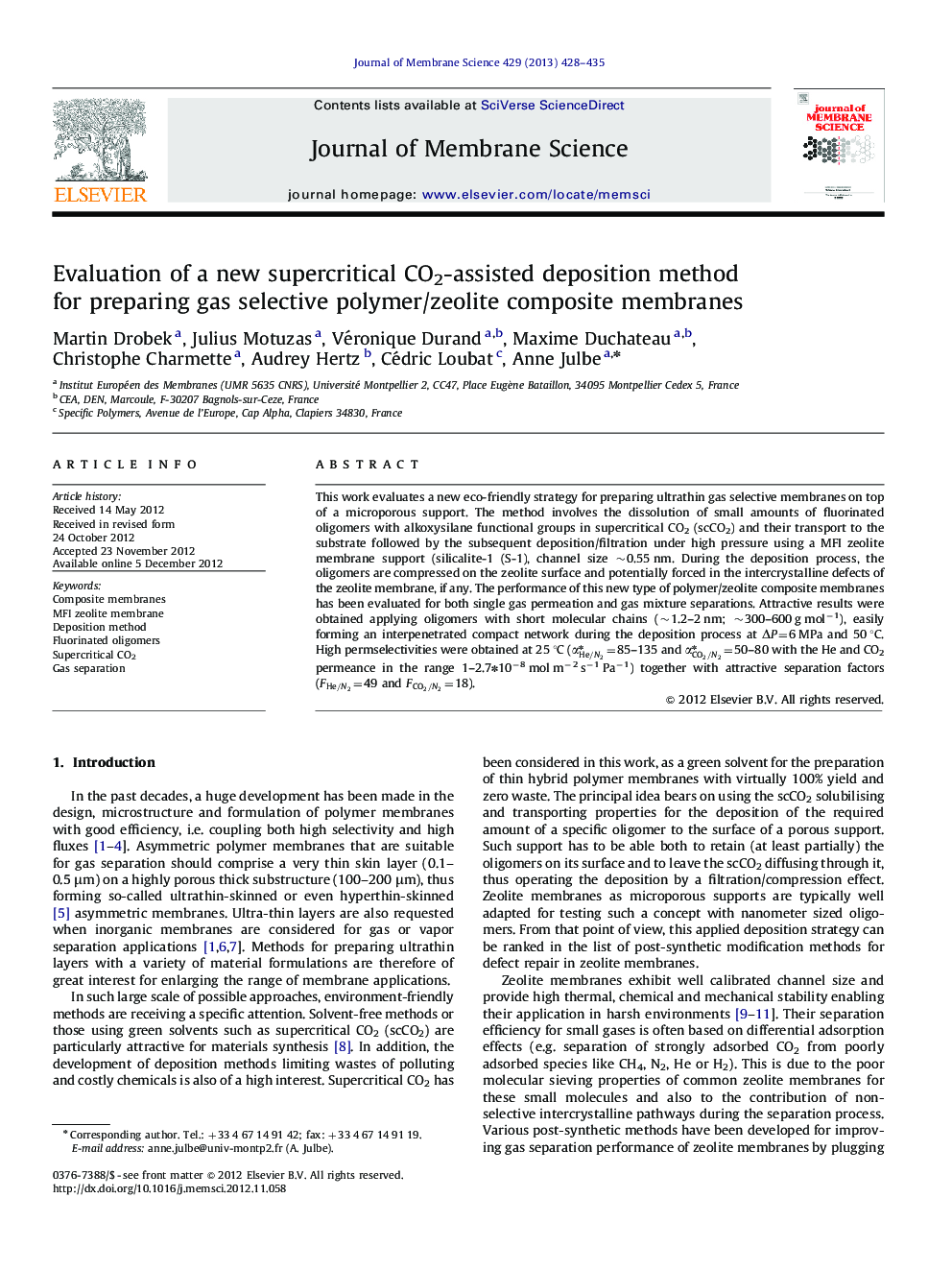| Article ID | Journal | Published Year | Pages | File Type |
|---|---|---|---|---|
| 634582 | Journal of Membrane Science | 2013 | 8 Pages |
This work evaluates a new eco-friendly strategy for preparing ultrathin gas selective membranes on top of a microporous support. The method involves the dissolution of small amounts of fluorinated oligomers with alkoxysilane functional groups in supercritical CO2 (scCO2) and their transport to the substrate followed by the subsequent deposition/filtration under high pressure using a MFI zeolite membrane support (silicalite-1 (S-1), channel size ∼0.55 nm. During the deposition process, the oligomers are compressed on the zeolite surface and potentially forced in the intercrystalline defects of the zeolite membrane, if any. The performance of this new type of polymer/zeolite composite membranes has been evaluated for both single gas permeation and gas mixture separations. Attractive results were obtained applying oligomers with short molecular chains (∼1.2–2 nm; ∼300–600 g mol−1), easily forming an interpenetrated compact network during the deposition process at ΔP=6 MPa and 50 °C. High permselectivities were obtained at 25 °C (αHe/N2⁎=85–135 and αCO2/N2⁎=50–80 with the He and CO2 permeance in the range 1–2.7⁎10−8 mol m−2 s−1 Pa−1) together with attractive separation factors (FHe/N2FHe/N2=49 and FCO2/N2FCO2/N2=18).
► Supercritical CO2 has been used for the deposition of fluorinated oligomers on a MFI (S-1) zeolite microporous support. ► Small quantity of oligomers was compressed on the zeolite membrane surface. ► Ultrathin gas selective membranes were formed and evaluated for both single gas permeation and gas mixture separations. ► Attractive results were achieved applying oligomers with short molecular chains forming an interpenetrated compact network. ► High permselectivities and separation factors were obtained.
